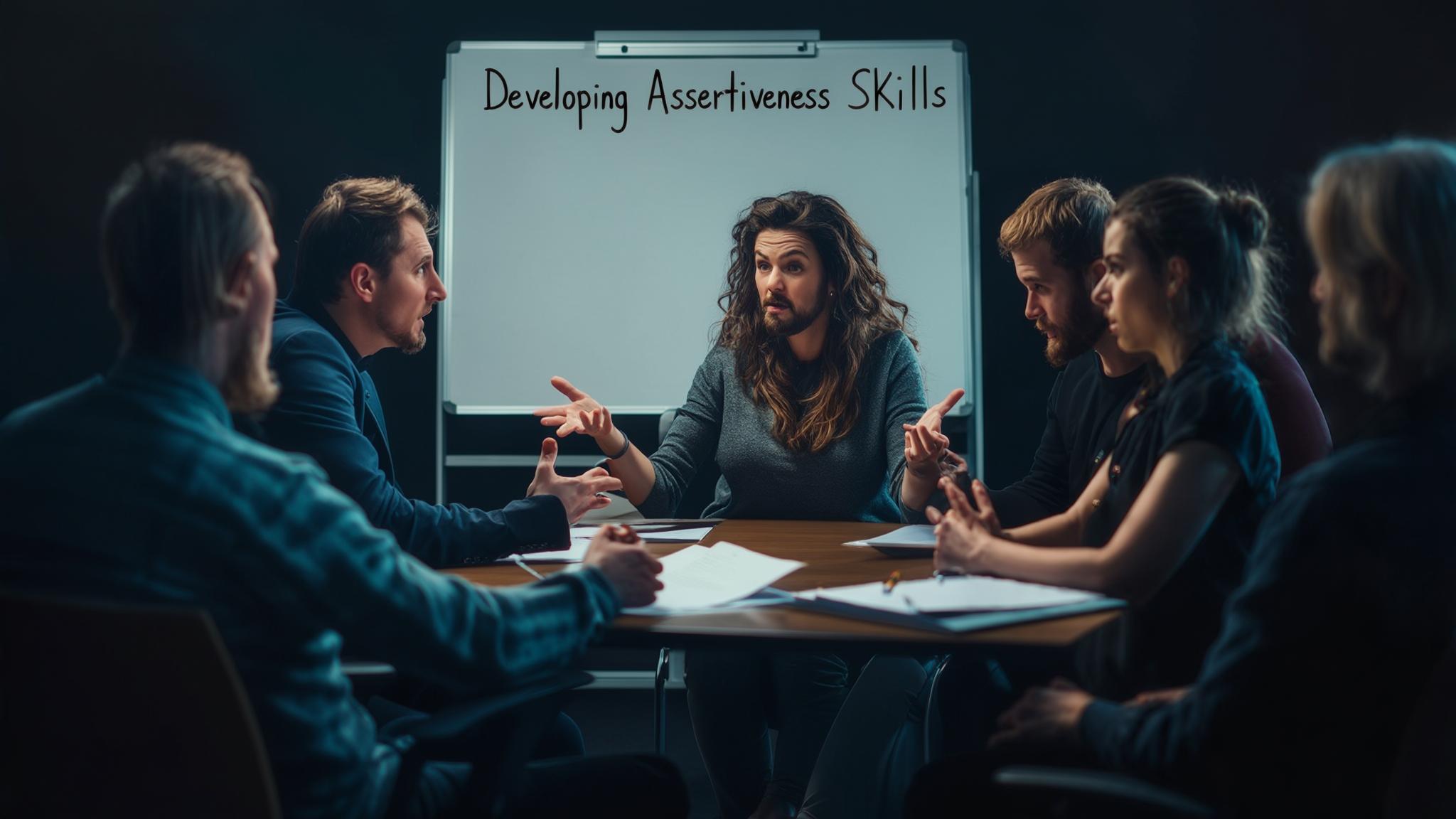Introduction
Definition of Assertiveness
Assertiveness is the ability to express one’s thoughts, feelings, and needs directly, honestly, and respectfully. It allows individuals to advocate for themselves while also considering the rights of others. Assertiveness is crucial in both personal and professional aspects of life, contributing to effective communication, relationship-building, and self-advocacy.
Role of Group Therapy
Group therapy provides a unique and supportive environment where individuals can explore their assertiveness skills. Within these groups, participants learn from each other, share experiences, and practice assertive communication techniques. This collaborative approach often fosters personal growth and development in ways that individual therapy might not achieve as effectively.
Purpose of the Article
The aim of this article is to explore how group therapy can effectively help individuals develop assertiveness skills. By understanding the dynamics involved and practical strategies, readers can appreciate the transformative power of assertiveness in their lives.
Section 1: Understanding Assertiveness
What is Assertiveness?
Assertiveness is marked by clear communication of one's needs without infringing on the rights of others. It stands in contrast to two other behavioral styles:
- Passivity, characterized by avoiding the expression of thoughts and feelings, often leading to resentment.
- Aggression, which involves expressing needs in a forceful manner that disregards the feelings and rights of others.
Benefits of Being Assertive
- Improved communication skills
- Enhanced self-esteem and confidence
- Better relationships and conflict resolution
- Stress reduction and emotional well-being
Being assertive not only helps individuals express themselves but also creates a healthier interpersonal dynamic in both personal life and the workplace.
Common Barriers to Assertiveness
- Fear of rejection or conflict
- Low self-esteem
- Cultural and social influences
- Lack of skills or knowledge
Recognizing these barriers is the first step toward overcoming them in a supportive group setting.
Section 2: The Role of Group Therapy in Developing Assertiveness
Overview of Group Therapy
Group therapy typically involves a small group of individuals who come together with a trained facilitator to work on specific issues, such as developing assertiveness. Types of group therapy include:
- Support groups, where individuals share struggles and successes
- Skills training groups, which focus explicitly on developing communication and assertiveness skills
How Group Dynamics Facilitate Learning
The shared experiences within a group can significantly enhance learning. Participants benefit from feedback from peers as well as from the therapist's guidance. The safe space provided in group therapy encourages vulnerability and fosters growth.
Specific Techniques Used in Group Therapy for Assertiveness Training
- Role-playing scenarios to practice assertive communication
- Group discussions on personal experiences with assertiveness
- Feedback sessions to reinforce learning and build confidence
- Homework assignments to practice assertiveness in real-life situations
These techniques allow for experiential learning, helping individuals to enact assertiveness in various contexts.
Section 3: Practical Strategies for Enhancing Assertiveness in Group Therapy
Setting Goals for Assertiveness
Setting specific, measurable goals both individually and within the group is crucial for tracking progress. Examples of achievable assertiveness goals include stating one’s needs more clearly or practicing saying ‘no’ in specific scenarios.
Communication Skills Development
- Effective verbal communication: Includes using clear and direct languages, such as “I feel” statements.
- Non-verbal communication: Emphasizes body language, tone, and facial expressions, which support verbal messages.
Handling Difficult Situations
Practicing strategies for conflict management can alleviate anxiety associated with assertiveness. Techniques such as assertive refusal and appropriate expression of feelings can significantly enhance individuals’ confidence in challenging interactions.
Building Confidence through Group Support
Encouragement and positive reinforcement from peers can play a vital role in building confidence. Sharing success stories helps inspire motivation and demonstrate the potential for personal growth.
Section 4: Measuring Progress and Outcomes
Assessing Improvement in Assertiveness
Evaluation tools such as self-assessment scales and feedback from peers are critical in assessing the development of assertiveness skills. Reflection and self-awareness contribute to a deeper understanding of personal progress.
Long-term Benefits of Assertiveness Skills
Developing assertiveness can lead to lasting improvements in personal and professional relationships, contributing to ongoing growth beyond group therapy.
Section 5: Challenges and Considerations
Potential Challenges in Group Therapy
Sometimes, participants may resist change or feel uncomfortable expressing themselves in a group setting. Group dynamics can bring about interpersonal conflicts that need to be addressed sensitively.
Addressing Individual Differences
Individual backgrounds and cultural contexts should be considered when tailoring assertiveness training. Embracing these differences fosters inclusivity and ensures more effective learning outcomes for all participants.
Conclusion
In summary, developing assertiveness skills through group therapy offers numerous benefits, including enhanced communication, improved self-esteem, and better interpersonal relationships. Group therapy serves as an effective platform for individuals looking to advocate for themselves in respectful and constructive ways.
We encourage readers to consider group therapy as a viable option for personal growth and assertiveness development. If you feel that assertiveness is an area you wish to improve, look for local group therapy options or resources.
References
Additional Resources
This article aims to inform and inspire individuals to take proactive steps in their personal development journey.

